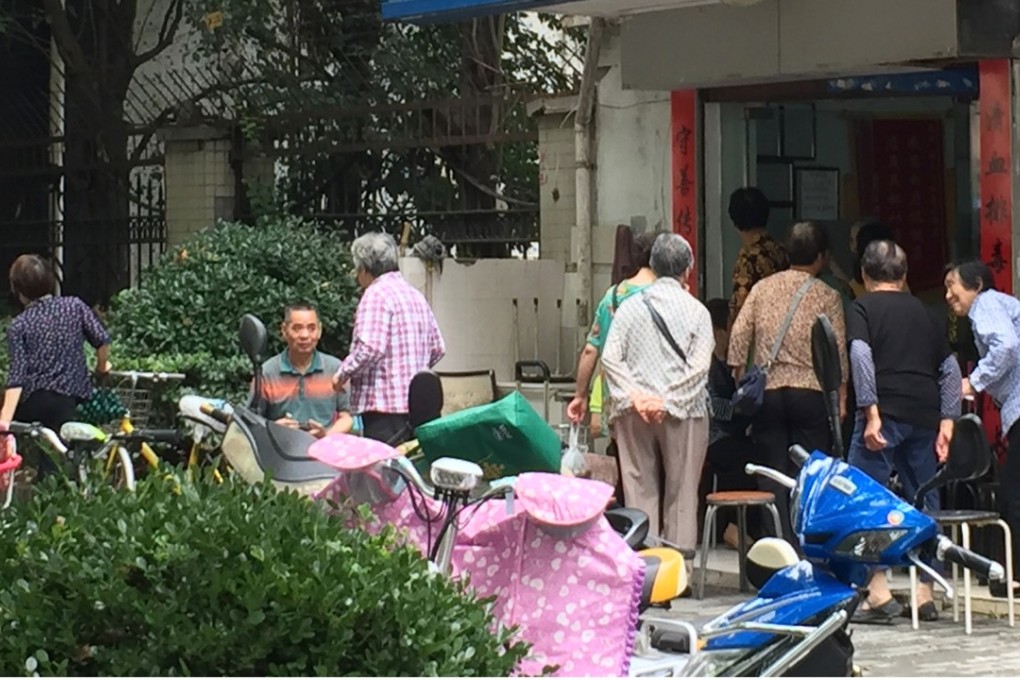When old is gold for the unscrupulous: the hidden cost of buying a longer life in China
Senior citizens can be a gold mine for sellers of dubious panaceas

The small health club on a narrow road in Shanghai’s Baoshan district stands out from the rest of the neighbourhood. Senior citizens mill around the front door, chatting and waiting their turn to sit in one of a dozen elaborate chairs.
The chairs deliver low-voltage electric charges to occupants, and regular customers evangelise about the treatment’s benefits, saying it can remedy anything from itchy skin to insomnia and immune deficiencies. The service is free but the chairs are on sale for 35,000 yuan (US$5,200) each.
The health club attracts hundreds of retirees each day and is one side of the booming business of marketing health products to the country’s ever-greying population – an industry dogged by dubious claims and sometimes tragic consequences.
Retired farmer Zhang Honggen, 72, lives on a monthly pension of 2,000 yuan and is one of the regulars at the club. He hasn’t bought one of the chairs but he knows others who have.
“I have come here every morning since February and after sitting in this chair I feel much better than before. I can sleep well now,” Zhang said. “It’s good that I don’t have to pay for it.”
While he is happy to get something for free, Zhang has been stung over the years by unscrupulous salespeople touting products that failed to live up to their medicinal claims. He said he had spent more than 20,000 yuan in recent years on powders and pills, nucleic acid capsules and caterpillar fungus tablets. He even bought a “miraculous needle” and an electrical instrument that both purportedly use low-voltage electricity to improve well-being.